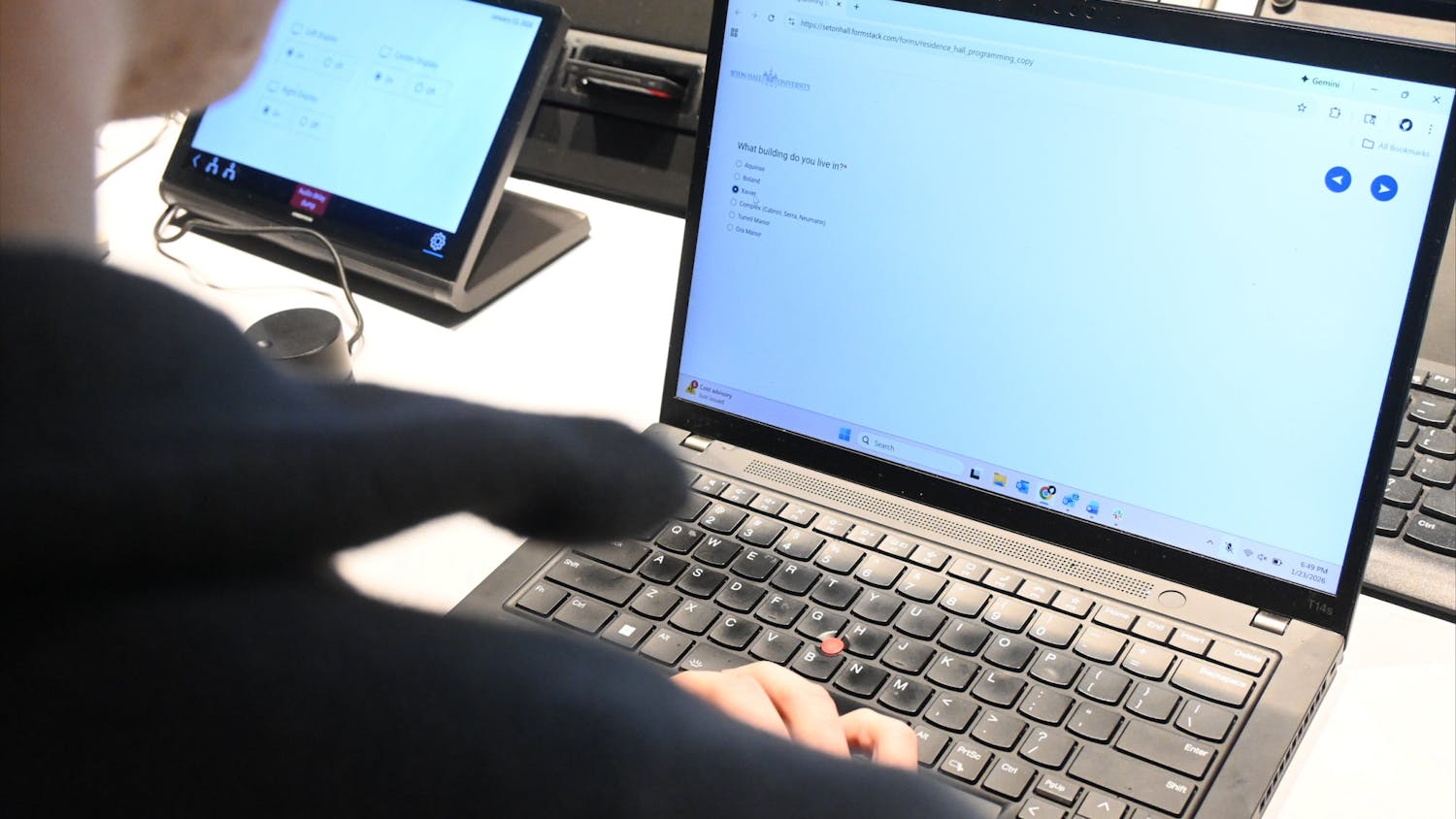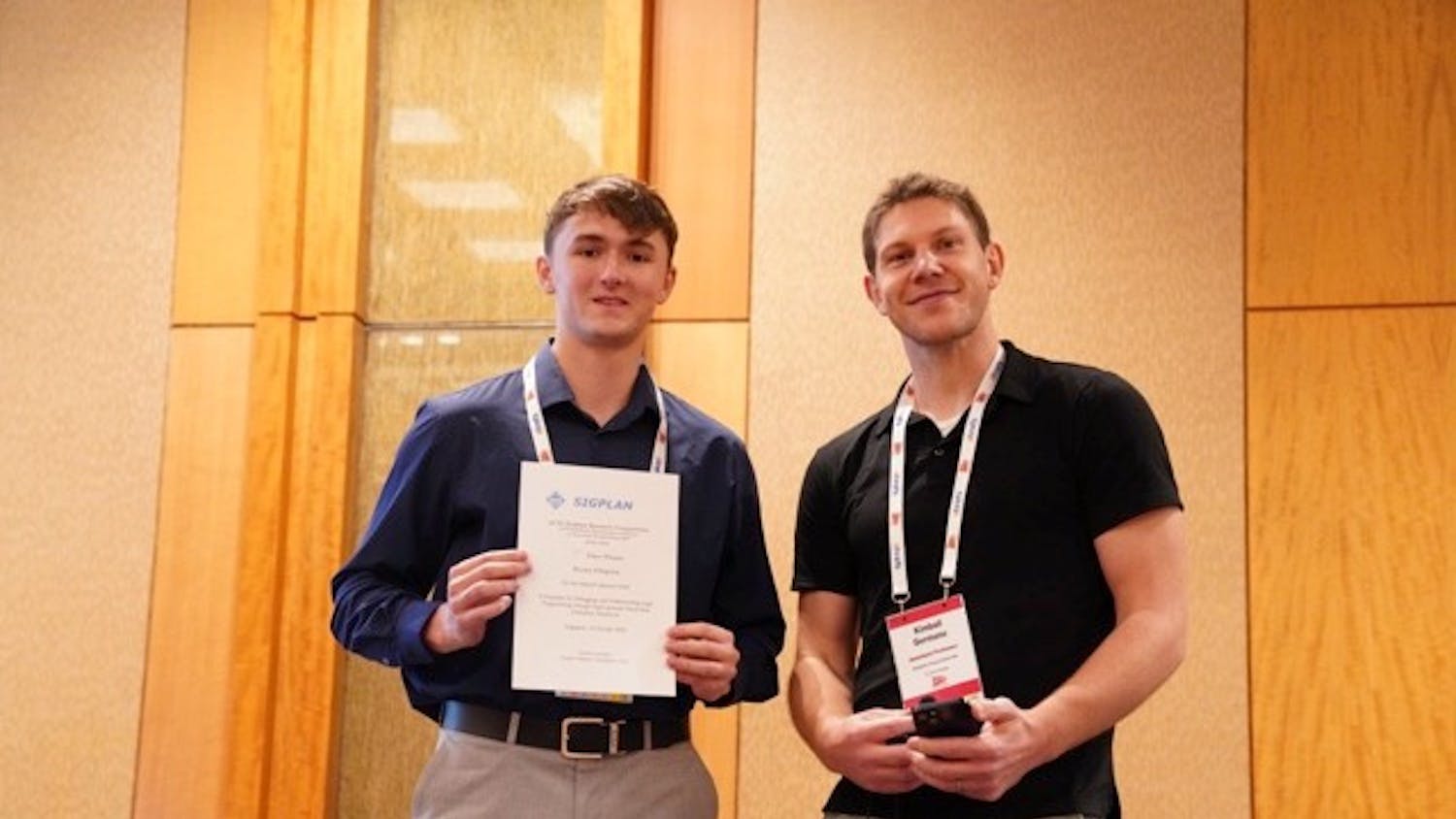 About 400 international students are currently registered to attend classes at Seton Hall, according to the Office of International Programs (OIP). These students face a unique set of challenges after graduation, but OIP offers them assistance.
According to an email interview with Michael Paultz, OIP Coordinator, OIP will “assist students in applying for work authorization through the United States Citizenship and Immigration Services (USCIS) after they’ve graduated.”
This work authorization typically provides students another year to gain work experience in the U.S. after graduation. This highly-coveted extra year can drive some international students to desperate measures. In fact, federal authorities in New Jersey arrested 21 “recruiters” on March 29 for hoaxing international “students” to attend the fictitious University of Northern New Jersey.
The University of Northern New Jersey, created by authorities to catch the 21 recruiters, received more than 1,000 foreign enrollments in the fake institution with student intentions of obtaining or keeping student or work visas.
According to an article in The New York Times, many of the recruited students had already legally obtained a visa to attend school in the U.S., but their time had run out and they were seeking an opportunity to remain in the U.S.
The desire to stay in the country after graduation is one that Renaldo Nel, a freshman economics major and international student from South Africa, can relate to. Nel said that after graduation, he wants to continue his career in the United States at the International Monetary Fund (IMF) or the World Bank as an economic analyst.
While his international peers’ plans vary, most international students also want to stay in the U.S.
Nel said he would only return home to South Africa if it is beneficial to his career.
“I believe that it is not often that international students return to their countries for family reasons,” Nel said. “Most often we (international students) relocate for good.”
Nel explained that after an extra year of work authorization, international students need to obtain a work visa. The requirement for obtaining the visa is a job offer.
“Without a job offer on the table, it is very difficult to obtain a visa,” Nel said. “However, after internships during your junior and senior year, you (students) will often get job offers from companies and you (students) can use these job offers to apply for a visa.”
However, this job search process can be difficult. According to h1base.com, a support organization for international workers and students, there is a “niche pool” of companies willing to sponsor an international job seeker for a work visa.
Alisha Sharaballi, a senior economics and diplomacy and international relations double major, said she understands this struggle well. Sharaballi is an Indian citizen and also has a residency in Australia, where her parents currently live.
“Even applying to internships, there are so many who explicitly state that they will not hire people who do not have legal authorization to remain in the country indefinitely,” Sharaballi said. “It’s understandable because jobs don’t want to invest resources in temporary hires.”
Sharaballi is an unpaid intern with the Tinker Institute on International Law and Organizations.
She has an internship with the same company lined up for after graduation. She said that because the internship is unpaid, “it did not matter” to the employer that she was an international student.
While the work visa is hard to come by for international students Paultz said that it opens an important door once it is obtained.
“This (obtaining a work visa) can, on occasion, lead to applying for permanent residence status, or a green card, and potentially becoming a citizen,” Paultz said.
Brianna Bernath can be reached at brianna.bernath@student.shu.edu
About 400 international students are currently registered to attend classes at Seton Hall, according to the Office of International Programs (OIP). These students face a unique set of challenges after graduation, but OIP offers them assistance.
According to an email interview with Michael Paultz, OIP Coordinator, OIP will “assist students in applying for work authorization through the United States Citizenship and Immigration Services (USCIS) after they’ve graduated.”
This work authorization typically provides students another year to gain work experience in the U.S. after graduation. This highly-coveted extra year can drive some international students to desperate measures. In fact, federal authorities in New Jersey arrested 21 “recruiters” on March 29 for hoaxing international “students” to attend the fictitious University of Northern New Jersey.
The University of Northern New Jersey, created by authorities to catch the 21 recruiters, received more than 1,000 foreign enrollments in the fake institution with student intentions of obtaining or keeping student or work visas.
According to an article in The New York Times, many of the recruited students had already legally obtained a visa to attend school in the U.S., but their time had run out and they were seeking an opportunity to remain in the U.S.
The desire to stay in the country after graduation is one that Renaldo Nel, a freshman economics major and international student from South Africa, can relate to. Nel said that after graduation, he wants to continue his career in the United States at the International Monetary Fund (IMF) or the World Bank as an economic analyst.
While his international peers’ plans vary, most international students also want to stay in the U.S.
Nel said he would only return home to South Africa if it is beneficial to his career.
“I believe that it is not often that international students return to their countries for family reasons,” Nel said. “Most often we (international students) relocate for good.”
Nel explained that after an extra year of work authorization, international students need to obtain a work visa. The requirement for obtaining the visa is a job offer.
“Without a job offer on the table, it is very difficult to obtain a visa,” Nel said. “However, after internships during your junior and senior year, you (students) will often get job offers from companies and you (students) can use these job offers to apply for a visa.”
However, this job search process can be difficult. According to h1base.com, a support organization for international workers and students, there is a “niche pool” of companies willing to sponsor an international job seeker for a work visa.
Alisha Sharaballi, a senior economics and diplomacy and international relations double major, said she understands this struggle well. Sharaballi is an Indian citizen and also has a residency in Australia, where her parents currently live.
“Even applying to internships, there are so many who explicitly state that they will not hire people who do not have legal authorization to remain in the country indefinitely,” Sharaballi said. “It’s understandable because jobs don’t want to invest resources in temporary hires.”
Sharaballi is an unpaid intern with the Tinker Institute on International Law and Organizations.
She has an internship with the same company lined up for after graduation. She said that because the internship is unpaid, “it did not matter” to the employer that she was an international student.
While the work visa is hard to come by for international students Paultz said that it opens an important door once it is obtained.
“This (obtaining a work visa) can, on occasion, lead to applying for permanent residence status, or a green card, and potentially becoming a citizen,” Paultz said.
Brianna Bernath can be reached at brianna.bernath@student.shu.edu





